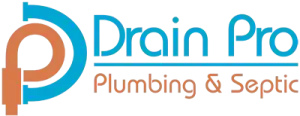
Clogged drains are a pain to deal with, and unfortunately, they’re quite a common problem in households all over the country. They can affect your daily routine when left untreated and can even cause expensive damage to your home.
Apart from the obvious discomfort a clogged drain can cause you, getting exposed to a contaminated drain can also pose a health risk to you and your family the longer you come in contact with it. Drains are usually contaminated with bacteria and other pathogens, and keeping stagnant water within the drains due to blockages can heighten the levels of bacteria and other disease-causing organisms that you might get exposed to.
As a homeowner, your knee-jerk reaction to clogged drains might be to clear it up yourself, DIY-style. However, as exciting as a personal home improvement project might sound, there are still a lot of things you need to consider before cleaning up your clogged drains yourself.
Apart from this, you also have to think back on your common plumbing practices that might be contributing to your clogged drains. Are you sure you understand your plumbing system enough to work on it?
If not, here are 5 drain clogging myths you might not be aware of and how you can address each one of them:
Myth 1: You can flush hygienic products down the drains.
Reality: Drains are susceptible to clogging if you keep on flushing items that might cause buildup in the system such as common household products, hygienic products, and more. Yes, this includes bathroom tissues and other sanitary items for daily use.
Segregating your trash can help prevent your drainage system from getting blocked by materials like tissue paper and sanitary products which do not melt or disintegrate as soon as they come in contact with water.
Myth 2: Chemical cleaning is the easiest way to clean up your drainage.
Reality: Harsh chemicals can break down your drains, causing further damage and a more expensive repair if left untreated. Over-the-counter cleaning items can also be hazardous to your health and the environment.
If you want to clean up your drains, there are safer services you can book with your plumber like hydrojetting and snaking.
Myth 3: Flushing hot water down the drain will clear it up.
Reality: Just like chemical cleaning, pouring hot water into your sink can be dangerous, not only because the scalding hot temperature can damage the pipes, but also because it can only provide a temporary solution to your plumbing problems.The best way to solve them is by enlisting the help of a certified plumber to clear the blockages out effectively.
Myth 4: Oil and food debris can be safely disposed of down the drain.
Reality: One of the most common reasons for drain blockages is food-related waste. Cooking oil can harden and settle down the drains, along with food waste such as fruit and vegetable peelings, leftover food, and more.
You have to be selective and careful of what goes down the drain to avoid clogs. Throw your food waste in the trash to ensure proper disposal.
Myth 5: You don’t need a professional to maintain your home drainage system.
Reality: Getting routine maintenance services from a professional plumber can help prevent the possibility of your drains from getting clogged. Your plumber can help you clear out any type of blockage forming within the drain through methods such as snaking and hydrojetting.
In conclusion, understanding what’s real and what’s not about your home drainage system is a must before you do anything that might cause more damage in the long run. It can also be extremely helpful to just leave the upkeep of your drains to the hands of an experienced plumber who has all the latest tools and information needed to maintain your plumbing system in its optimum condition.
Drain Pro Plumbing, your trusted Kent plumbing team can help you take care of your drains at home and more. Contact us anytime for plumbing maintenance and other pipeline or waterline-related concerns and we’ll be more than happy to assist you.


